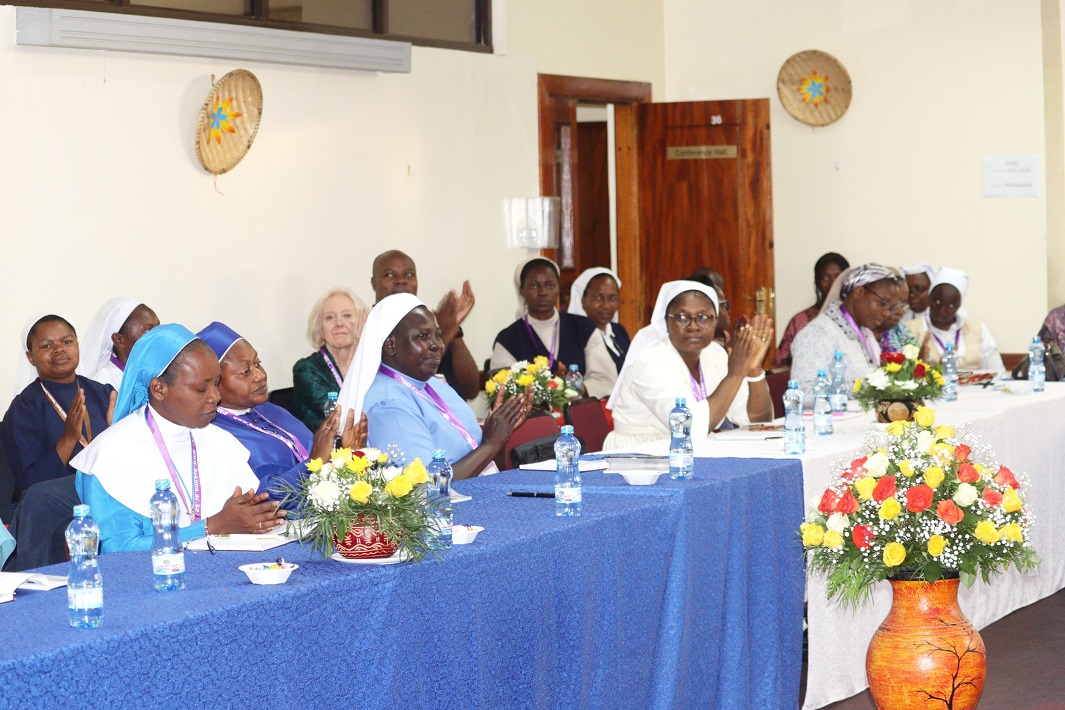By Paschal Norbert
NAIROBI, MARCH 8, 2024 (CISA)– The first day of the African Women Theologian Conference at Hekima University College (HUC), Kenya, began in earnest with a purposive exploration of the value, authentic voice and contribution of African Women Theologians to the Church and world.
In his opening address at the international conference dedicated to celebrating women theologians on March 7, Fr José Minaku, SJ, the President of the Jesuits Conference of Africa and Madagascar (JCAM) called upon the participants to ensure the conference is marked by the spirit of inclusiveness and respectful exchanges for the construction of a truly synodal Church.
While calling for the conference to value the process of systemization and inclusivity of thought and quoting Ghanaian Theologian Mercy Amba Oduyoye, the JCAM president stated “This inclusivist approach is important for the history of African theology because its rich initial intuitions did not benefit from a systematization of thought. As such, pioneer theologians, especially women, disappeared with their original garb. Hence, this conference must value the process of systematization.”
He noted that the conference at HUC provides a genuine reconciliatory opportunity to bridge the historical injustices between society and women.
“African women theologians may not appear extraordinary to some, but it remains indubitable that women have contributed significantly to shaping the history of thought. Whether in society or academia, women have succeeded in reconquering their rightful place in society. Although social structure, especially the African society, shaped by a predominantly patriarchal and masculine mentality, repeatedly marginalizes women, a conference of this sort reminds the society of the gaps to fill in the area of equal rights,” he noted.
Fr Minaku emphasized the significance of the voices of women in religious discourse by stating that “women’s voices can help the Church find its true face and embrace her professed synodal identity: one, holy, catholic, and apostolic.”
He explained, “This way, these voices give a particular tone to the unity of the Church, rich in its diversity. They strengthen the holiness of the Church through the testimony of so many holy women. These voices express the catholicity of the Church, which is not restrictive by nature but open and embracing. Finally, women’s voices highlight the apostolicity of the Church in that the elevation of Mary Magdalene to the rank of an apostle becomes an eloquent sign of the inevitable restoration of a history truncated by masculine power. This remarkable sign dares to place women in the hierarchy of the Church.”
Mrs Margaret Muhoro, the chairperson of HUC’s Governing Council, highlighted that for the voices of women to be heard today, it must be distinguished from noise and women have to be prepared to take their seats at the table.
According to Jesuit Agbonkhianmeghe E. Orobator, dean of the Jesuit School of Theology of Santa Clara University (JST-SCU), by speaking at the synodal table of the Church, today’s African women theologians are part of a long tradition of women who have promoted a more synodal and inculturated vision of the Church. He maintained women are the backbone of the Church and are well capable of speaking for themselves.

